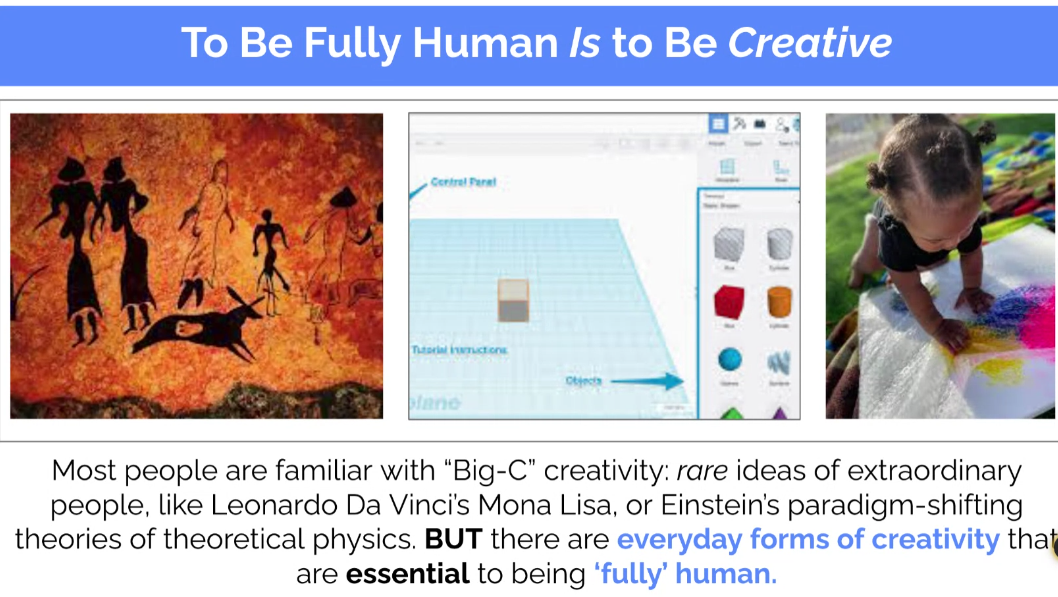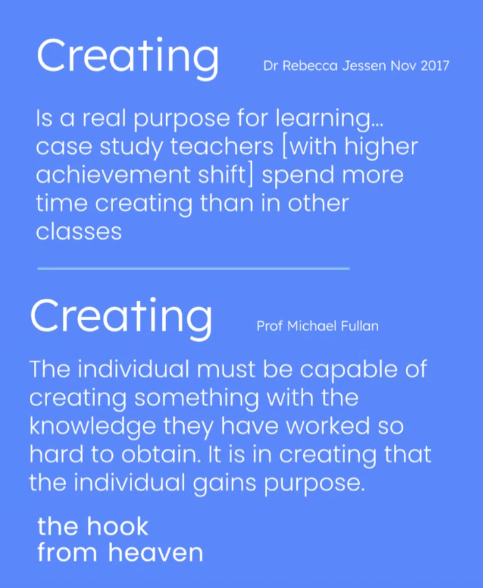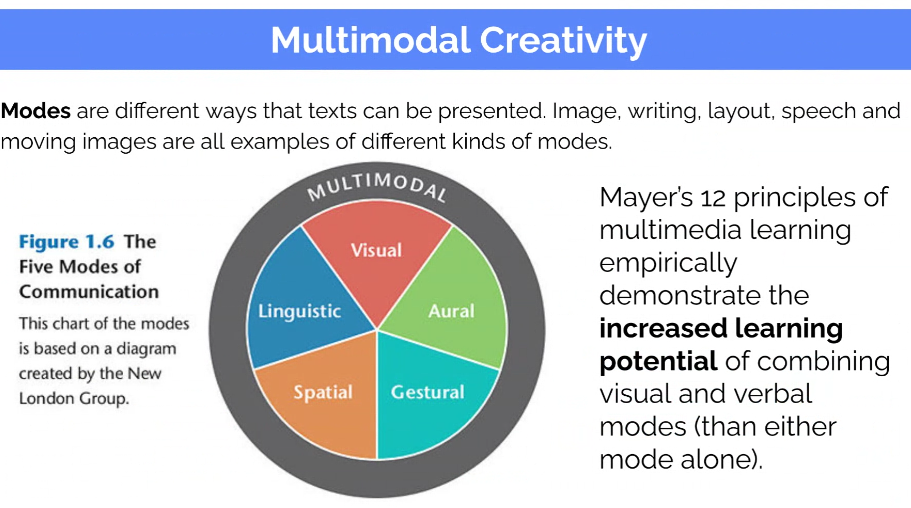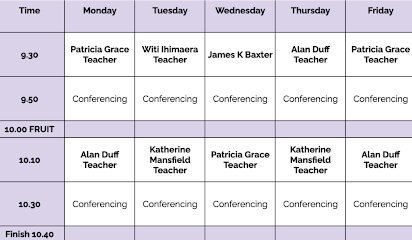Creating. This is my biggest weakness! I often struggle to come up with ideas. I am a creative person in my own time - photography, art, crafts, writing... why can't I do this in class?
This session made me realise it is much easier than I had lead myself to believe. Seeing others' work has set off a few lightbulbs for more and having a resource bank I can use as is, or to springboard my own ideas off, is just a godsend.
Creativity is what sets humans above animals. We need to create beyond just making a bed for ourselves or a functional home.

Creativity helps us come up with new ideas and make progress in different fields like science, technology, business, and the arts. It allows us to think outside the box and find solutions to problems. Without creativity, we would not be able to move forward and face the challenges of our changing world. These changes are coming thick and fast and it is essential our tamariki learn to harness their creativity.

When we think creatively, we can approach problems from different angles and find unique solutions. This is helpful in our personal lives and also when dealing with big issues like climate change, poverty, and healthcare. Creativity helps us find new ways to solve problems and make the world a better place. In a world that is constantly changing, creativity helps us be flexible and adapt to new situations. It allows us to think on our feet and make the most of opportunities that come our way. With creativity, we can overcome obstacles and keep moving forward.
The underlying kaupapa of Manaiakalani is "the hook". What is going to hook tamariki in so they excel at everything they do. What is going to excite them? What is going to motivate them to learn and change the world? Creative work is one of these hooks. Get them to create something exciting and they will learn more and achieve more with what they believe is no more effort.

It is important to come at their learning from all angles and opportunities. Multimodal creativity ensures that the tamariki are more engaged and that as many as possible are hooked in.
Looking at the opportunities I offer my tamariki create wise, it is clear that I need to ensure that I am stepping up on what I give them to do. The biggest issue I have in class with offering new things is that it can sometimes take multiple sessions of "I do, we do, you do" for them to do the simplest of creates. I can have bulleted step by step instructions which they won't read, I use mote to give them instructions verbally - but they won't listen to it. They go straight to DOING it and doing it badly often. Or, after a whole class lesson on how to do something I can't run a small group as there are multiple interruptions with kids so far off course that I want to cry. We may have done a particular activity several times, and yet the same questions come up. They seem not to be able to understand instructions despite the five ways I have given it to them and the rewindable learning on it. This is something I have to work on and could well be my reading for a fortnight or more. I will have to go through an instruction and we discuss what it means, what are they supposed to do, throw some maths word problems in there, a few class activities with instructions, but really just be teaching instructional words, what they mean, testing if they understand (as a comprehension "test") and the sometimes fun consequences (with some tricks up my sleeve) when they don't read or clarify instructions up front. A few ideas are running around my head now.
What I love about Manaiakalani is the collaboration amongst teachers. The support, willingness to share ideas and mahi amongst everyone is amazing. Teachers too often are reinventing the wheel and you may have a 1000 teachers doing the same thing on any one day yet each of them have created their own resources to teach it. This doesn't happen in Manaiakalani and I love this aspect of the kaupapa.
I have come away from this session with many ideas and I am relieved that I am now armed with more creative ways of engaging my tamariki and hopefully boosting their rate and depth of learning.









